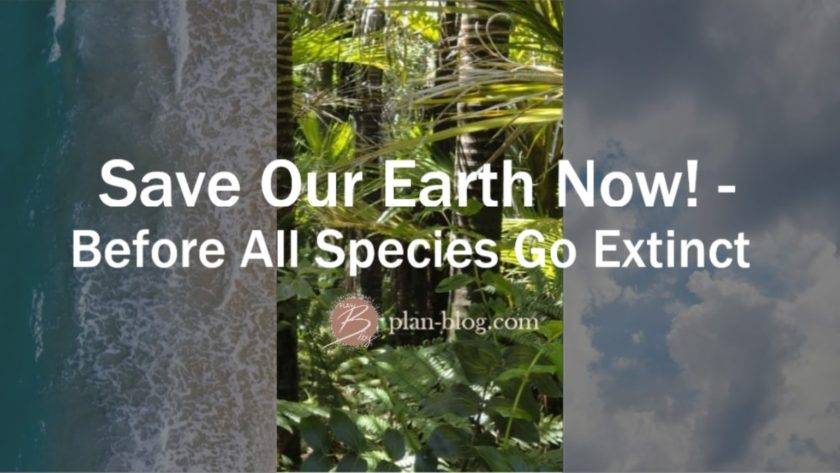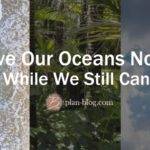We have all heard it so many times. Scientist have been telling us for years but it seems as if we haven’t heard it enough yet because there is no real impactful change happening yet! Planet Earth is so far our only chance at existing in this universe and we are doing so much to destroy this chance. There is no Planet B and we need to start acting on that knowledge now and save our earth.
This post is one out of three posted on occasion of World Earth Day (22nd of April). The others are linked at the end, so check them out as well.
In this one we will talk about everything going on on land and how those things endanger our whole planet and therefore us. We have three sections to discuss:
- What is happening?
- Why do we have to protect our earth, meaning animals on land and forests?
- What can we do?
What is happening?
We want to talk about three things in particular here and I believe the first one is obvious for everyone when they think about how we are destroying our land. It’s deforestation.
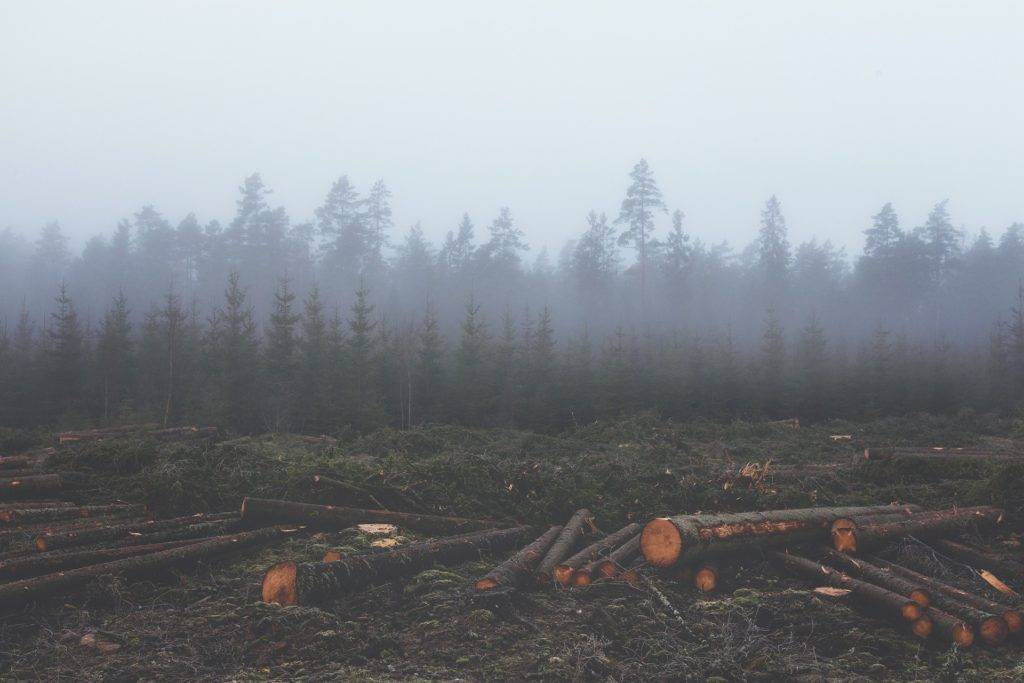
Every year about 300.000 square kilometres of rainforest are getting destroyed by either cutting it or burning it down [9]. That is about the size of Italy. Half of those forests are in tropical countries like Brazil, Kongo, or Indonesia. Indonesia has already lost about 70% of its ancient forest [8]. Worldwide 80% of our forests are irreparably damaged, leaving the ground infertile [8]. We are destroying, the forest’s water cycle, making it likely that the areas convert into savannahs.
With the destruction of the forest 100 species go extinct daily [9]. Endemic species are lost due to the loss of their habitat. It also drives away indigenous people who have lived in the forests for centuries.
Destroying the rainforest is pumping a lot of carbon dioxide into the air and no trees are left or have the chance to grow again to convert it back into oxygen. Deforestation is responsible for about 10% of all CO2-emissions worldwide [9] and a lot of the operations responsible for cutting our trees down are illegal. The biggest importer of tropical deforestation and therefore its emissions is China (24%) followed by the European Union (16%) [11].
But why are they cut or burnt down? The main reason are plantations. Mainly palm oil-, soy-, banana- or coffee plantations and those are funded by selling the cut down wood to big companies. Other reasons are to exploit the land of natural resources, build big dams or simply use the wood to build furniture and produce paper.
Another huge reason why forest areas are burnt down, is to create paddocks for cows and other animals used in animal agriculture. And that brings us to the next big problem we are facing on land.
Animal Agriculture is responsible for about 91% of deforestation, either to create paddocks or grow plants to feed the animals with [3]. It is also the leading cause for ocean dead zones, habitat destruction and species extinction and occupies about 40% of land worldwide [3].
Animal waste from, for example cows, sheep and goats, pumps methane into the air, a greenhouse gas 25 times more effective than CO2. It also produces 65% of the worlds nitrous oxide which is about 290 times worse than carbon dioxide [3]. This nitrous oxide rich waste is often dumped into the oceans, making it uninhabitable and destroying marine life. About 116.000 pounds of waste are produced in the US alone [3]. Also: animal agriculture produces more greenhouse gases than the whole transport sector combined. And the emission of this industry is predicted to rise by 80% in the following years [3].
Another thing about animal agriculture is, it requires a massive amount of water! Raising animals for food makes up 30% of the worlds water consumption [3]. All of earths people drink about 19,7 billion litres of water per day and need about 21 billion pounds of food. Cow’s drink 170 billion litres of water per day and need about 135 billion pounds of food [3]. There is also a great amount of energy required to transport food for the animals to them and afterwards the meat to different countries to sell it.
50% of all grain grown on earth goes to animals [3] and about 96% of soy plantations is used for animal products [7]. We could feed all people on earth if we processed that food for humans instead of animal agriculture. Animal Agriculture is responsible for 51% of human caused climate change [3].
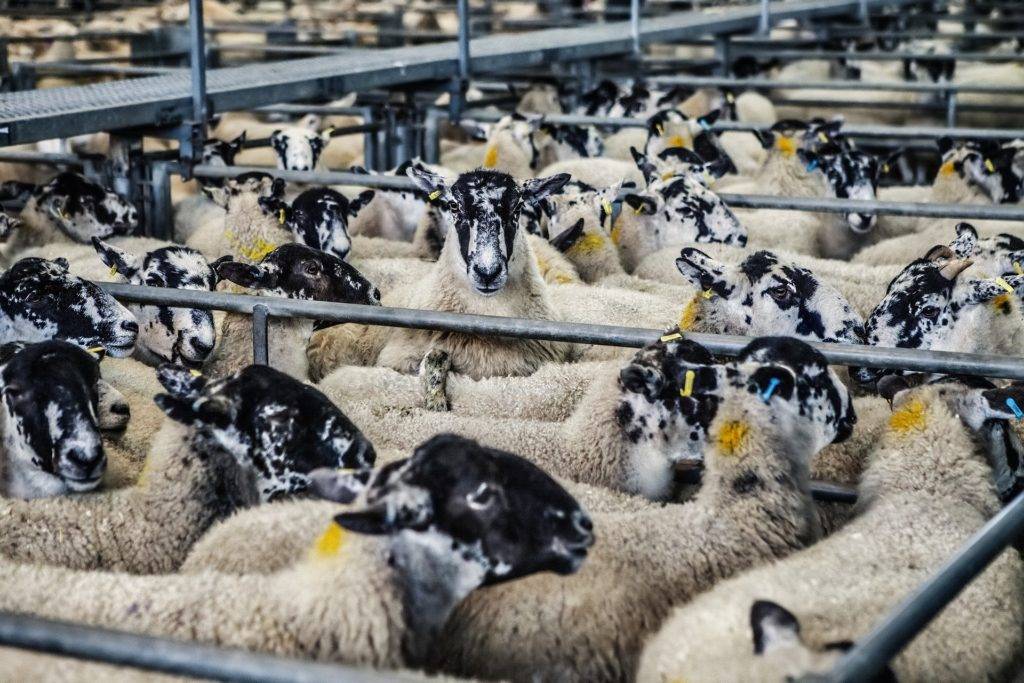
But it is not only the use of water, food and land that is problematic for the industry. To maintain the animal’s safety, for example on horse ranges, predator animals, like wolfs and coyotes are systematically killed which threatens the natural food chain gravely.
The animal agriculture industry is the most powerful industry worldwide. In some countries where people rely on it, people who speak up against it are killed or silenced [3]. Important people of the industry have a massive number of legal resources to destroy everyone who comes against them. Another interesting thing is that most governments know about the issues and support animal agriculture. This industry is paid with taxes. And, fun fact: According to the FBI the number one domestic terrorism threat are animal rights and environmental activists [3].
The last problem we want to talk about regarding problems on land is Poaching. While you may believe that it is forbidden in many countries it is still happening! Especially in countries like China, Vietnam, or Thailand the demand for certain animal products is very high. The illegal trade with wild animals is worth 20 Billion Euros every year [5] and is the fourth biggest felony worldwide, after drug and human trafficking and product piracy [5].
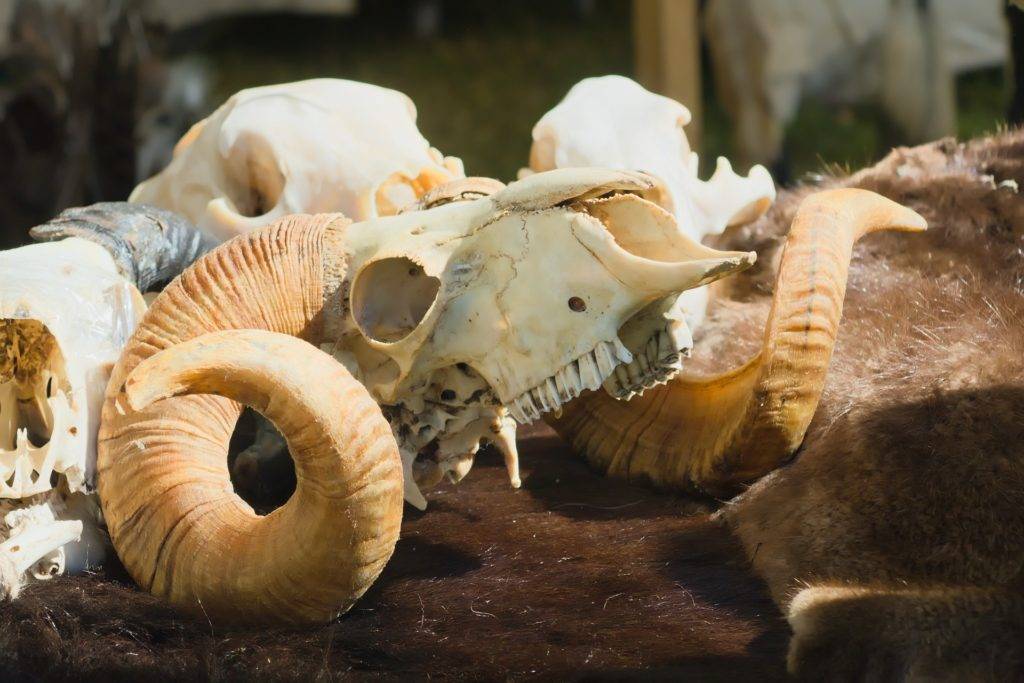
In 2015 an average of 3 to 4 rhinos and 20.000 elephants were murdered on a daily basis [5]. The horn of a rhino is treated as a drug in Vietnam and is worth more than gold on the black market.
In Africa and Asia gorillas and chimpanzees are hunted for food, elephants for their teeth and tigers and lions for their fur. These animals’ parts are status symbols, trophies for hobby hunters or are used as remedies. This international network of organised animal trade has huge consequence for our biodiversity. The red list of endangered species with already 25.000 species of animals and plants on it gets longer and longer.
Another cause for poaching is commercial fishing. In some parts of Africa small local fishermen cannot compete with commercial fishing at their coasts and therefore must hunt for food on the inland [10]. This bushland meat can carry diseases, going from animals to humans.
Why do we need to protect our earth?
Now why do we have to protect our forests and animals? Why not let them burn or be hunted down for human entertainment and advantage? Why should we save our earth?
The Amazonas rainforest takes up about 2 billion tons of CO2 yearly [9]. The rainforests are our planets’ lungs. Without them climate change will happen even faster. But if we want to use the forest against climate change, we need to let them age. The longer a tree has time to grow as an adolescent tree, the older it will get. And there are still so many secrets we do not know about trees yet, but to understand them, we need to let them age. We need to stop cutting them down. We need to stop destroying their water cycles or we will have a lot less rain and it will come to draughts. There are more living creatures in a hand full of forest ground than people living on earth!
We need to leave wild animals alone so viruses and other diseases cannot jump over to humans and cause pandemics. 70% of all viruses originally stem from the animal kingdom for example AIDS, Ebola, the bird flu and also Corona [9].
Nature will always recover, it doesn’t have time pressure so it takes its time to do so, lots of it, and we should not rush it.
What can you do?
“Unless someone like you cares a whole awful lot,
The Lorax, Dr. Seuss
Nothing is going to get better. It’s not.”
Now what can we do about these problems? What can we do to save our earth? A lot starts in the supermarket:
- Buy recycling toilet paper
- Eat less meat or completely eliminate meat and animal products from your diet.
- There is a huge amount of alternatives nowadays.
- Buy expensive meat where you know where it comes from if you don’t want to quit eating meat.
- Food for the animals we are eating comes from plantations in the rainforest, so you won’t only protect animals, you will also protect the forest.
- It takes about 700 square meters to feed a vegan. It takes three times more to feed someone living as a vegetarian and 18 times more to feed someone eating meat [].
- Buy regional and seasonal products to save energy used for transport of products to your local supermarket.
- Eat as low down the food chain as you can and as often as you can!
- If possible drink water from the tab. There are possibilities to filter it or even put gas in it, don’t buy it in plastic bottles.
- Stop buying products with palm oil in them. It will not only help save forests but especially the cute little monkeys called Orang Utans.
Other ways to help are:
- Save paper. Don’t print out things you don’t have to. Don’t buy magazines you don’t need and check where your paper comes from. Use it more than once, it often has a backside you haven’t used yet.
- Dont use Biofuel.
- It does sound nature friendly but the ressources used to make it often come from the rain forests.
- Do not buy animal products like real fur, snake skin or ivory.
- Check the label when buying clothes. Often animal products are hidden in buttons or leather labels on clothes.
- Support projects that so something against these problems. There are places that take up animals from the agriculture industry that will get killed otherwise and a great amount of organizations trying to do something against deforestation, but they need help to continue doing what they are doing.
- Share! Share the information. Talk about the problems with your friend and family!
“You can’t be an environmentalist and eat animal products, period.”
Howard Lyman
We would love to hear your opinion on these matters in the comments. Let us know how you feel about what is happening to our earth, what else we could do to save it or even additional information.
Check out our other two posts talking about issues on our planet and share them to engage in the much needed conversation about these matters.
Sources:
[1] PETA, “Fight Climate Change by Going Vegan“, https://www.peta.org/issues/animals-used-for-food/global-warming/ (10 April 2021)
[2] Pro Wildlife, “Wilderei bedroht tausende Arten“, https://www.prowildlife.de/jagd-wilderei (10 April 2021)
[3] Kip Andersen & Keegan Kuhn (Directors), 2014 “Cowspiracy: The Sustainability Secret“, USA: Appian Way, A.U.M. Films, First Spark Media, (https://www.cowspiracy.com/facts)
[4] Livia Albeck-Ripka, The New York Times, “How to Reduce Your Carbon Footprint“, https://www.nytimes.com/guides/year-of-living-better/how-to-reduce-your-carbon-footprint (17 April 2021)
[5] WWF, 06.01.2021, “Stopp Wilderei Weltweit“, https://www.wwf.de/themen-projekte/weitere-artenschutzthemen/wilderei (18 April 2021)
[6] WWF, 06.01.2021, “Die Droge Nashorn“, https://www.wwf.de/themen-projekte/weitere-artenschutzthemen/wilderei/die-droge-nashorn (18 April 2021)
[7] https://www.instagram.com/wwf_deutschland/
[8] Greenpeace, “Forest Destruction“, https://www.greenpeace.org.au/what-we-do/protecting-forests/forest-destruction/#:~:text=As%20much%20as%2080%25%20of,biodiversity%20loss%20and%20community%20displacement (10 April 2021)
[9] Abenteuer Regenwald, 05. Juni 2020, “Der Regenwald wird zerstört“, https://www.abenteuer-regenwald.de/wissen/abholzung#:~:text=Der%20Regenwald%20wird%20zerst%C3%B6rt,oder%20zum%20Bau%20von%20Gro%C3%9Fstaud%C3%A4mmen (10 April 2021)
[10] Kip Andersen (Producer) & Ali Tabrizi (Director), 2021, “Seaspiracy“, A.U.M. Films, Disrupt Studios
[11] Béatrice Wedeux (WWF-Belgium) and Anke Schulmeister-Oldenhove (WWF-EU), WWF, April 2021, “Stepping Up? The Continuing Impact of EU-Consumption on Nature Worldwide“, https://www.wwf.de/fileadmin/fm-wwf/Publikationen-PDF/WWF-Report-Stepping-up-The-continuing-impact-of-EU-consumption-on-nature-worldwide-ExecSummary.pdf (19 April 2021)

